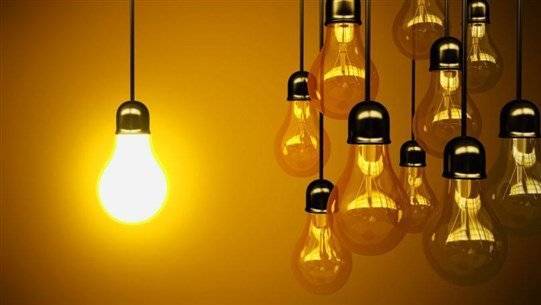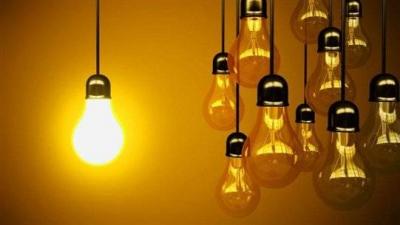A week ago, the road between Ain Qana and Jbaa was cut off in protest over electricity rationing, which nearly escalated tensions between the residents of the two villages. Electricity supply in Ain Qana has dropped to 12 hours, while Jbaa continues to receive 20 hours, despite both villages being fed from the Bessri hydroelectric plant. The issue didn't stop at Ain Qana; Kfarhatta also joined the electrical protests and directed harsh messages towards Jbaa.
It appears we have entered an era of conflict over electricity, a struggle that could exacerbate divisions within the villages. What is happening in the villages of the Taffih region is a purely political struggle among power factions. Jbaa is the municipality of MP Mohammad Ra'ad, while Kfarhatta and Ain Qana's affiliations lie with the Musaylakh. The former enjoys 20 hours of electricity, whereas Kfarhatta and Ain Qana only receive 12 hours. Everyone agrees that the problem is political, manifested through coded messages on the ground, despite a common belief that the issue lies in the rationing associated with line number 3.
According to the electricity distribution map from the Bessri plant, electricity is fed through three lines: Line number 1 connects the villages of Jezzine and Jbaa, providing 20 hours of supply; Line number 2 connects the villages of Mazboud and Zahrani as well as others in the Chouf; and Line number 3 links the villages of Kfar Melki, Kfarhatta, Kfarfila, Ain Qana, and others in the eastern Saida area, currently supplying 12 hours. This is the point of contention, which was demonstrated by the road blockage in Ain Qana last week against the residents of Jbaa, and on Friday, the road in Kfarhatta was also blocked.
No one denies the intensity of the ongoing electrical conflict between the villages, which may lead to bloodshed if the escalation rhetoric continues. Why has the conflict erupted now, and what are the cryptic political messages it carries? Is this a struggle against electricity rationing or something more? There is consensus that the problem is political with an electrical flavor, and its solution lies in restoring the 20-hour supply to the line—a potentially straightforward task, according to Kfarhatta municipality member Hussein Hamada, who refers to a solution map provided by a former electricity company employee. Hamada claims that it would be possible to restore the line to 20 hours within four days.
However, sources from the electricity company confirm that the issue with this line lies in violations that exceeded 35%, which have been removed, leading to the adoption of a new rationing system based on a 4-4-4 distribution, reducing the prevailing tensions. Hamada disagrees, asserting that violations exist across all lines and not just on line 3, firmly stating that the conflict is purely political. He mentioned that following the Energy Minister's decision to cancel all lines, the head of the Litani Authority responded, “We will stop supplying the plant with water," which caused the Minister to retract his decision.
The electric supply in these towns, while Lebanon is plagued by darkness, has led residents of Beirut and neighboring villages to move into Kfarhatta, Kfar Melki, and others, sparking a rental trade with prices dropping as low as $100. However, according to Hamada, these villages demand their rightful electricity, a point raised with MP Hani Qabisi, who promised to work on finding solutions to the crisis, threatening escalation if the supply does not return to 20 hours before Wednesday. Regarding potential escalation, Hamada stated, “We will turn off the electricity plant.”
The electricity struggle is merely a vehicle for cryptic political messages between the Amal Movement, Hezbollah, and the Free Patriotic Movement. Line number 1 is affiliated with the FPM and Hezbollah (Jezzine-Jbaa), line number 2 is for Sunnis, and line number 3 is linked to Musaylakh, as confirmed by the residents. Locals point out that the connection of Kfar Melki to line number 3 is at the root of the issue, as the village was previously connected to line number 1. For political reasons, sources say it was reconnected to line number 3 to allow for the inclusion of certain villages from Jezzine while keeping it off line number 1 to avoid the rationing, especially since Jbaa is a tourist destination.
The current electricity conflict adopts a dangerous political escalation that could lead to clashes in the streets, surpassing previous movements from the residents of Ain Qana and Kfarhatta. The tension reached a peak when residents of Ain Qana blocked Jbaa residents from passing into their village, claiming, "You are depriving us of electricity." The degree of criticism directed at Jbaa, which enjoys a 20-hour supply, has been notable, with affected villagers questioning, “Why does one village receive 20 hours while another only gets 12?”
This conflict has moved beyond a mere protest against reduced supply and is seen as a political statement, dragging the villages into an overt political struggle.




